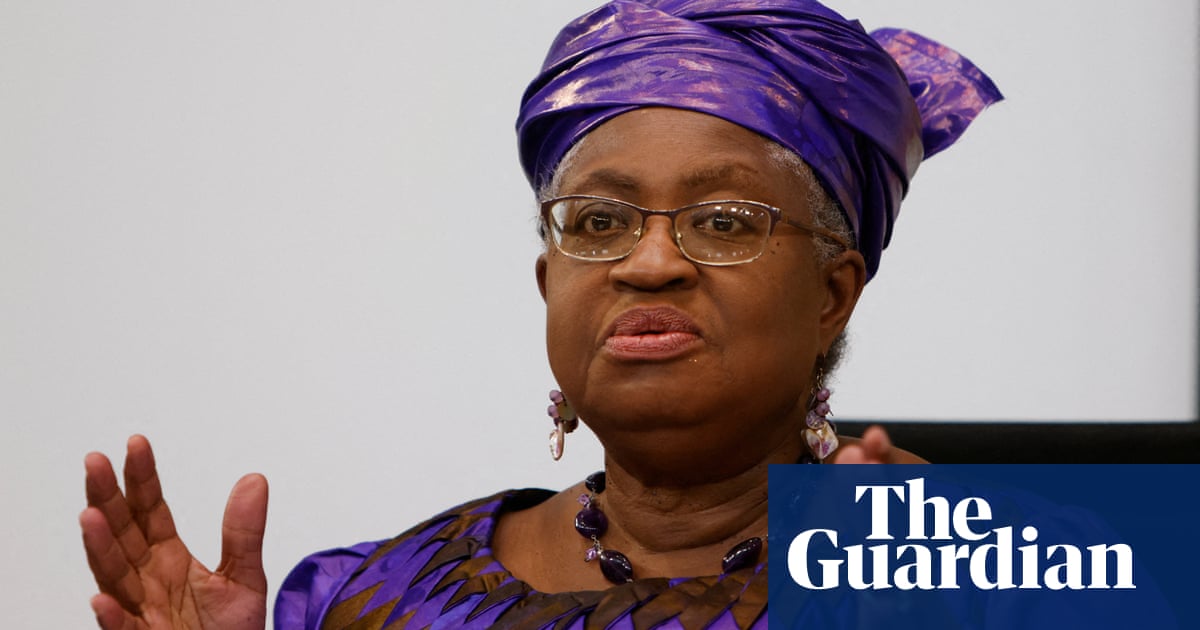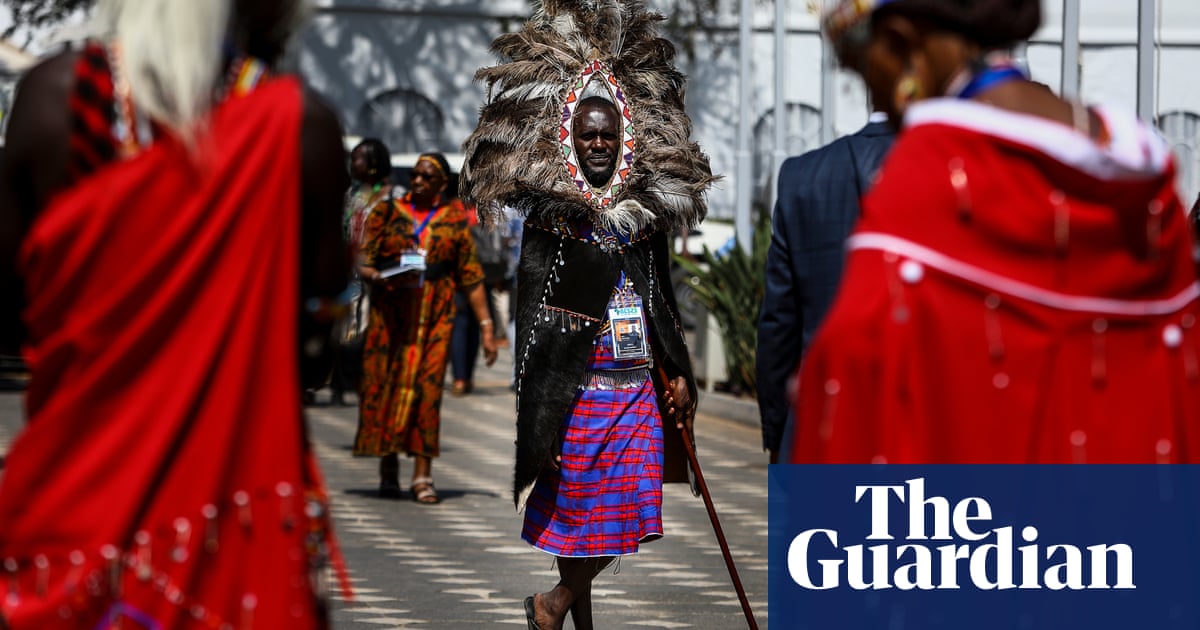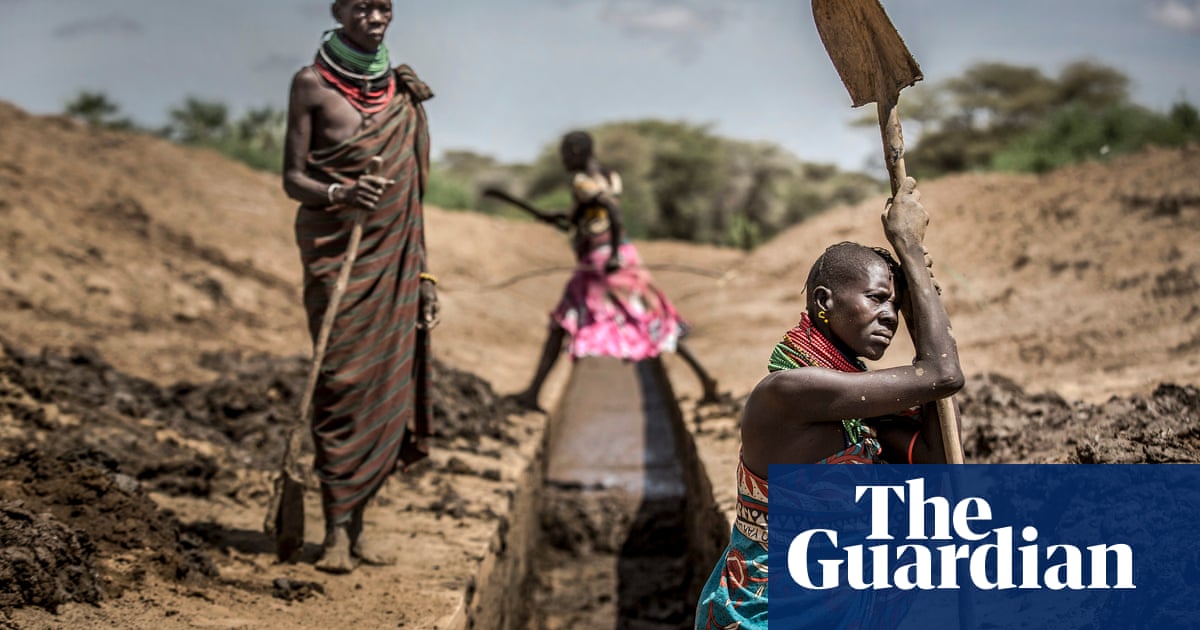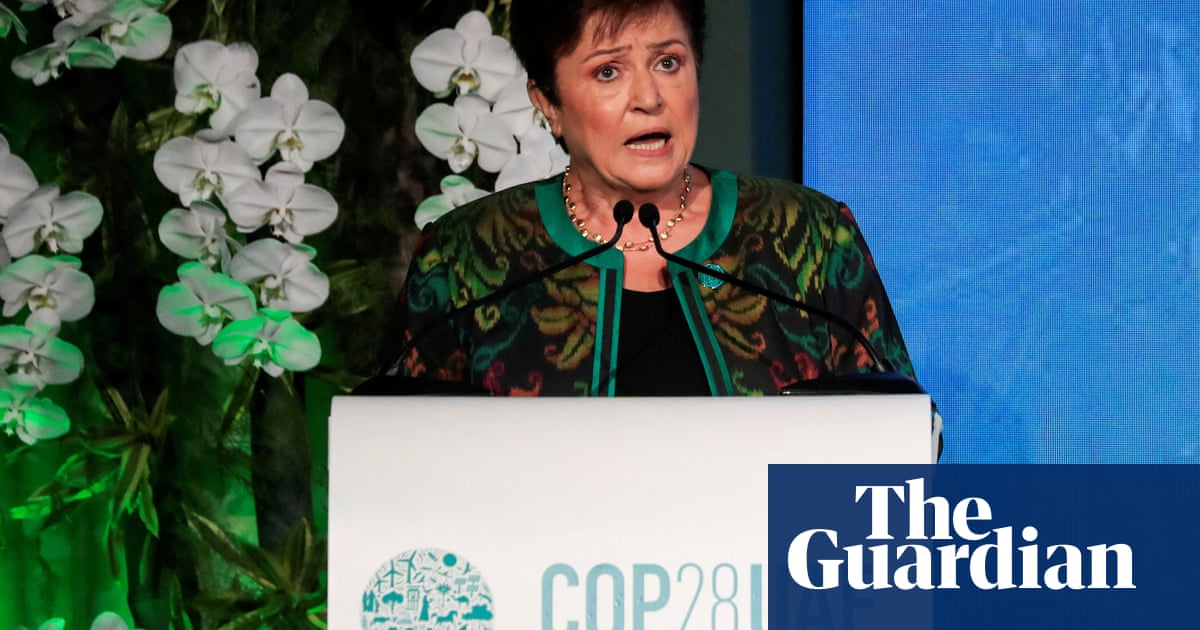
Removing trade barriers around the world would help to tackle the climate crisis, enable a “just transition” away from fossil fuels and make developing countries more resilient to the impacts of global heating, the head of the World Trade Organization has said.
Ngozi Okonjo-Iweala, who took over as director general of the global watchdog last March, said: “Trade is part of the solution, not part of the problem … We need a global effort to climate-proof the supply chains and infrastructure of the most vulnerable economies or risk undoing hard-won economic progress and development.”
She told the Guardian trade would be essential to helping developing countries cope with the effects of extreme weather, which are already being felt. “We need to put in place trade policies to cushion against the negative impacts of climate change, to ensure food security in the face of climate threats [and] provide access to adaptation technologies,” she said.
Developing countries have long been wary of international trade talks, fearing that wealthy countries were using them to protect their own economies while enabling them to export goods to poor countries, and in some cases criticising the WTO for being biased in favour of the rich. Many have also been sceptical of including climate issues, and fear that “environmental” standards insisted on by some developed countries would be used as a cover for raising barriers to cheap imports from the developing world. Green campaigners have also claimed the WTO has encouraged high-carbon trade.
Okonjo-Iweala, a former finance minister of Nigeria and World Bank economist, who is the first African and first woman to head the WTO, moved to reassure doubters. “Trade helps to build resilience. People don’t recognise it but the fact [is] that in times of great difficulty, trade can help move services and goods to where they are needed. Food for instance: trade helps to move food from one area that is not drought-stricken or flood-prone to another.”
Environmental rules could be compatible with trade, she said: “The WTO rules do not preclude people from putting in environmental standards [but] if you’re designing your environmental policies you have to do it in such a way that it’s transparent, and you are not discriminating against like products.”
The WTO last week embarked on an initiative to incorporate environmental concerns into trade, with roadmaps for the reform of fossil fuel subsidies, encouraging sustainability in international trade, and controlling plastic pollution.
Okonjo-Iweala believes that, in the wake of the Cop26 summit, trade will become a vital tool in achieving the drastic cuts necessary in greenhouse gas emissions, helping to shift the global economy to a low-carbon footing. She said: “What is clear is that climate negotiations have shifted from technical discussions to actual implementation … This makes the role of trade and trade policy even more urgent in ensuring a just and effective green transition for all.”
Agreements were signed in Glasgow last month to cut methane around the world, protect forests, and institute a global system of carbon trading under the 2015 Paris agreement, all of which she said the WTO could help with.
But she said developing countries also needed assistance from the rich world, especially in the form of climate finance, which comes from public and private sources in the rich world to help poor countries cut emissions and cope with the effects of extreme weather. Rich countries have so far failed to produce the $100bn in climate finance promised each year to developing countries from 2020, though they are likely to hit the target by 2023.
Okonjo-Iweala said this was not good enough: “If you can mobilise $26tn [in response to Covid-19], it beggars belief from the part of developing countries that you can’t mobilise $100bn [for climate finance]. That’s what’s causing a huge trust deficit.”
The UK should also restore its recent cuts to overseas aid, she added. “We all want the UK to go back to 0.7% [of GDP going to overseas aid, the previous target which was slashed to 0.5% by the chancellor of the exchequer, Rishi Sunak]. It’s been a leader in overseas aid and should continue to lead. So we don’t want to see this cut back.”
Over the next year, countries will be asked to reconsider their national targets on cutting emissions and how to meet them, before the next UN climate meeting, Cop27 in Egypt in November. Okonjo-Iweala said: “We saw promising outcomes from Cop26, but I would not be alone in saying that the world is not yet on track to giving the most vulnerable countries and communities a fighting chance in the face of climate change. The WTO has a vital role to play in harnessing trade as a tool to get us closer to climate targets.”












